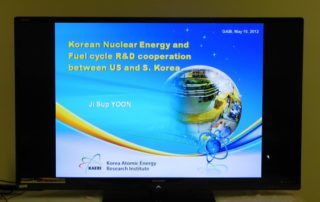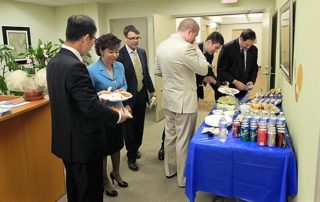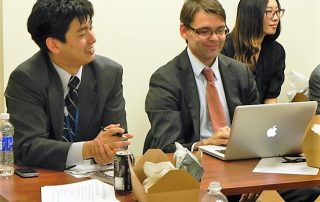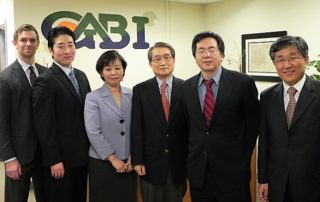At present, dialogue on nuclear technology in Washington, DC has tended to focus on issues related to nuclear materials security, nonproliferation, and arms control issues, rather than nuclear power. As a result, the policy community in Washington tends view nuclear power technologies with some skepticism. Given this environment, it is GABI’s commitment to promote, educate, and enhance the understanding of the vital role of nuclear power from the perspective of ensuring energy security, reliability and sustainability.
Nuclear Energy in Korea: US-ROK Fuel Cycle R&D Cooperation
Nuclear Energy in Korea: US-ROK Fuel Cycle R&D Cooperation May 10, 2012 With few viable energy alternatives, South Korea relies on nuclear power to meet its growing energy demands and limit its greenhouse gas emissions. However, Korea faces significant challenges in the management of spent nuclear fuel, stemming from geographical issues and episodes of vociferous







